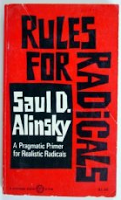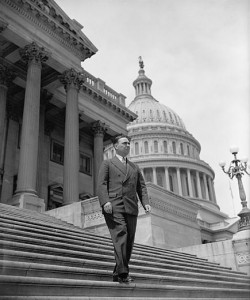Union organizers are often highly trained. In many unions this training includes indoctrination in Saul Alinsky’s “Rules for Radicals.”
Saul Alinsky was a ruthless radical organizer. He would stop at nothing to win. Before he passed away in 1972 he published a book called “Rules for Radicals” in which he outlined his power tactics and questionable ethics.
Anyone interested in staying, or becoming, Union Free, whether in an organizing campaign or in a decertification or deauthorization election, ought to become familiar with these rules.






